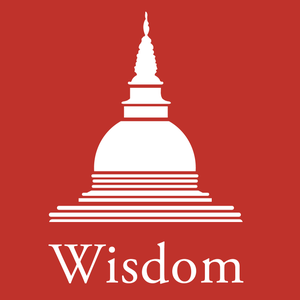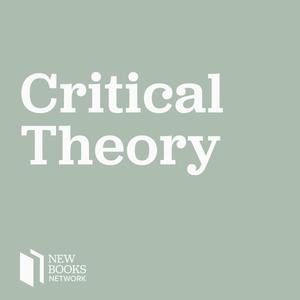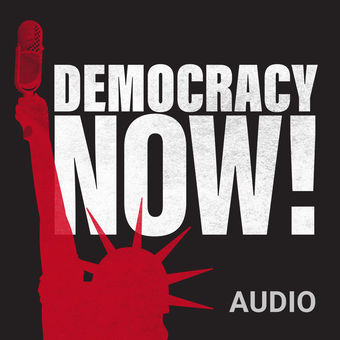
The Mindful Cranks
Ronald Purser
A forum dedicated to critical thought and reflection on a range of topics related to individual and social change, informed and inspired by contemplative traditions and the humanities.
- 50 minutes 24 secondsEpisode 49 - Tara Isabella Burton- Self-MadeI am really excited about the conversation I had with Tara Isabella Burton – who is a novelist, essayist and scholar of religion and spirituality – and we spoke about her new book, Self-Made: Creating Our Identities from Da Vinci to the Kardashians, published by Public Affairs. Tara takes us on a historical tour of the evolution of self-making, that is, how our notions individuality and self-identity formed in response to dramatic social and economic upheavals. Our conversation begins with the Renaissance – and we cover a lot of historical ground, from the aristocratic strands of self-creation during the European Enlightenment -- all the way to our current selfie obsessed and social media influencer culture. Her book is really jammed packed with novel insights and revelations that trace this inward turn to our search for authenticity and how we have come to relocate the source of divinity in our own egoic desires – where our own desires become the source and arbiter of truth and reality. It really is a far-reaching conversation about the crisis of reality in Western culture and the prognosis is, honestly, not good.
Tara received a doctorate in theology from Trinity college, Oxford, where she was a Clarendon scholar in 2017.
Her first nonfiction book was Strange Rights: New Religions for a Godless World, also published by Public Affairs.
She really has been quite prolific. She has published essays in such outlets as the New York Times, The Atlantic, Current Affairs, Literary Hub, Vox, The Plough and many, many more.
20 July 2023, 4:20 pm - 1 hour 9 minutesEpisode 48 - Derek Beres - Conspirituality
It would appear that Lululemon-wearing Yoga teachers are worlds apart from gun-toting, far-right Trumper conspiracists. Yet, during the Covid-shut down, when revenues from brick-and-mortar yoga studios dried up - many prominent yoga instructors, as well as wellness influencers who saw big bucks could made in the midst of the vaccine paranoia – these strange bedfellows warmed up to each other!
I had the good fortune of speaking with Derek Beres, co-founder of the Conspirituality podcast, which I am a fan of…about his new book by the same name, Conspirituality: How New Age Conspiracy Theories Became a Health Threat, published this month by Public Affairs.
In this episode, we barely scratch the surface of this timely and eye-opening book. Derek was deeply immersed and personally invested in yoga communities for many years, and not only this, but health and wellness has been his beat as a professional journalist.
From anti-vaxxers and vaccine misinformation, to the paranoia of child-trafficking and the Satanic Panic, to the body fascism of modern yoga and obsession with body purity in the wellness industry, to the pseudoscience, magical thinking of New Age channelers – we unpack some of the main themes that have contributed to the frauds, con artists, hucksters and charlatans – many of which now thrive on social media, with millions of followers.
Derek Beres is a multi-faceted author, speaker, and media expert based in Portland, Oregon. He has served in senior editorial positions at a number of tech companies and has years of experience in health, science, and music writing. He regularly speaks on science and media literacy. Derek is the co-host of the Conspirituality podcast.
Big Think article.
14 July 2023, 10:18 pm - 1 hour 13 minutesEpisode 47 - Peter Hershock: Buddhism & AI
Since the release of OpenAI’s ChatGPT earlier this year, there has been a media frenzy – with AI suddenly becoming of mainstream interest and concern. In this episode, I spoke with Peter Hershock, a prolific scholar trained in Asian and comparative philosophy, who has had a long-term interest in the ethical dimensions of our relationship with technology. His latest book, Buddhism and Intelligent Technology: Toward a More Humane Future, is another example of Peter’s creative and penetrating way of approaching a very complex subject – where he draws from the deep well of Buddhist thought – with its rich histories of cultivating ethical intelligences, grounded in attention training, an understanding of karma, and the importance of developing a responsive virtuosity – for the purposes of eliminating value conflicts and suffering. Our conversation sheds light on why we need to see the ethical issues surrounding AI as a demand for more enhanced human capacities of predicament resolution, not as mere technocratic problems to be solved. Resolving such values conflicts, Peter tells us, requires clarity in understanding how we got to where we are, and a commitment to be present as in order to respond to in ways that are superlative – an improvisational.
We touch on a number of themes – why we should view AI more as a synthetic form of intelligence - which can helps us to see with more clarity how our own wants and desires are feeding a karmic loop, in effecting colonizing our consciousness; how our reliance on so-called smart services could inadvertently have unintended consequences in the forfeiture of our own social intelligence and capacities for open creativity and embodied presence – and much more.
Peter Hershock, Ph.D. is Director of the Asian Studies Development Program (ASDP) at the East-West Center at the University of Hawaii in Honolulu. Dr. Hershock is also the Director of the Center’s initiative on Humane Artificial Intelligence, with a focus on the societal impacts and ethical issues raised by emerging technologies. Trained in Asian and comparative philosophy, his research and writing draw on Buddhist conceptual resources to reflect on and address contemporary issues of global concern. His books include: Liberating Intimacy: :Enlightenment and Social Virtuosity in Ch'an Buddhism(1996); Reinventing the Wheel: A Buddhist Response to the Information Age (1999); Buddhism in the Public Sphere: Reorienting Global Interdependence (2006); Valuing Diversity: Buddhist Reflection on Realizing a More Equitable Global Future (2012); Public Zen/Personal Zen: A Buddhist Introduction (2014); Value and Values: Economics and Justice in an Age of Global Interdependence (edited, 2015); and Philosophies of Place: An Intercultural Conversation (2019).
28 May 2023, 12:13 am - 1 hour 11 minutesEpisode 46 - Martin Parker: Shut Down the Business School
I really enjoyed speaking with Martin Parker about his bold book, Shut Down the Business School: What’s Wrong with Management Education, published by Pluto Press. Yes, you heard that right – Shut Down the Business School, Bulldoze it over…flatten it! Sure, sounds a little hyperbolic, but this is a serious book and not some frivolous rant.
Even as far back as 1995, Martin Parker was criticizing the corporatization of higher education – what he dubbed, “The McUniversity” – the title of an article he published in the journal Organization. Soon thereafter, his book, “Against Management” came out, which landed him a Chair position at the University of Keele – a unique Department of Management composed of interdisciplinary scholars which became a radical hotbed.
I think what makes this conversation unique is that Martin and I are both Professors of Management; we’ve both been housed within a Business school at our respective universities. Martin is now at the University of Bristol in the UK. When he was the Chair at Keele, he spearheaded the formation of a fringe sub-discipline in the field of management, known as Critical Management Studies. We share a lot in common in that neither of us have an undergraduate or graduate degree in Business or Management…and as marginal outsiders.
So this conversation is very personal. There has been a great deal of criticism of Business Schools over the years, external critiques such as from the Carnegie Commission - but what’s quite remarkable that much of the criticism has come from insiders – prominent professors from such places as Stanford in the US and McGill in Canada. We reflect on the ironies of this, as Parker himself has been rewarded and promoted for his provocative articles and books. He has been biting the hand that feeds him for years, and that hand – the B-school, has seemed to have developed a natural immunity to such infectious assaults.
We briefly explore such topics as the history of the B-school, the problems with MBA programs, the various calls for reform that have fallen on deaf ears, along with why B-schools have been fiercely loyal and beholden to teaching managerial capitalism – and the inevitability of the corporatizied form as the one best way, even the only way, to organize. As our conversation evolves, Parker tells us straight up why the “student as customer” and such marketized notions as “student satisfaction” – are problematic. This insidious trend has been part and parcel of the corporatization of the university – where knowledge itself has become that which is purely utilitarian, relevant and which can be marketized and sold. Parker explains to us how B-schools have functioned as the loudspeaker for managerial capitalism – where Management has now come to be seen as absolutely necessary to all organizations, a claim of expertise which essentially denies that others have the capacity for managing their affairs. Finally, we come to the core questions – What should B-schools be for? Given the meta-crisis of climate change, gross global economic inequities, deteriorating mental health, and so on - why are B-schools accomplices to these meta-problems rather than their solution? Parker advocates that B-schools, given their tremendous reach and leverage, need to be shut down and reinvented as Schools of Organizing – where students can be introduced a wide range of approaches to organizing – and where the curriculum mandates that every discipline and course incorporates a fundamental imperative towards carbon reduction.
I hope you enjoy our lively and animated discussion – as well as few rants.
Martin Parker is Professor in the Department of Management at the University of Bristol. Professor Parker has held academic posts at the University of Leicester School of Management, Staffordshire, Keele and Warwick universities. His background is in anthropology, sociology and cultural studies. He is previously Editor in Chief of the journal Organization: The Critical Journal of Organization, Theory and Society. His recent books include Anarchism, Organization and Management (Routledge 2020) and Life After COVID19 (Bristol University Press 2020), as well his classic, Against Management (Polity Press, 2002). His other projects include leading the Bristol Inclusive Economy initiative, helping tilt the city towards low carbon, high inclusion and high democracy workplaces. He has also written about such odd topics - outlaws, angels, the circus, angels - and showing how they can be understood as relevant to thinking about organizing. He is currently writing about weeds.
14 April 2023, 9:38 pm - 50 minutes 25 secondsEpisode 45 - Alissa Quart: Bootstrapped: Liberating Ourselves from the American Dream
Has the American Dream been built on a fundamental delusion – that we are all independent and autonomous individuals – that whether we become insanely wealthy or completely broke - is simply a matter of choice? That if we wish to be successful we just need to work hard, put our nose to the grindstone, and pull ourselves up by our own – well, Bootstraps?
Bootstrapped: Liberating Ourselves from the American Dream is the title of Alissa Quart’s new book, published by Ecco Books/HarperCollins. We cover a lot of ground in this conversation – from looking at the shadowy histories of Horatio Alger, Ayn Rand and the Americans icons of self-reliance – including Emerson and Thoreau – to debunking contemporary myths of the self-made man and woman, and examining how this American folk psychology of bootstrapping has fueled many rich fictions that have valorized a heroic independence, thus marginalizing a more social and interdependent understanding of human flourishing and wellbeing. Alissa points us to a way of embracing our dependence on others, not as something weak or shameful – but as a natural expression of our humanity – offering a more communitarian – a New American Dream.
Alissa Quart is the author of four other acclaimed books Squeezed, Republic of Outsiders, Hothouse Kids, and Branded, as well as two books of poetry Thoughts and Prayers and Monetized. She is the Executive Director of the non-profit the Economic Hardship Reporting Project. She has written for many publications including The Washington Post, The New York Times, and TIME. Her honors include an Emmy, a Society of Professional Journalist award and a Nieman fellowship. She lives with her family in Brooklyn.
Can We Put an End to America’s Most Dangerous Myth? The New York Times – Opinion – Guest Essay
Remembering Barbara Ehrenreich, Acid Wit and Workers’ Champion, Alissa Quart, Time
13 March 2023, 12:25 am - 1 hour 6 minutesCurtis White - Transcendent: Art and Dharma in a Time of Collapse
Could it be the case that the Western Buddhists have lost touch with the radical questioning and the transformative power of transcendence? Has the focus on meditation, the mimicking of South Asian monastics with the necessity of engaging in long and austere silent retreats, and the dominant materialist view that Buddhism is a “science of mind” created an ecology that is elitist and exclusionary? Will worshipping at the secular alter with its fMRI brain scans satisfy our yearnings for transcendence? Is stress-reduction, neuro self-optimization and vague notions of individualistic ‘happiness’ and so-called “human flourishing” among the Secular Buddhist all we can expect from Buddhism modernism?
What if -- rather than science and psychology -- that the arts may a more fruitful path and gateway for us in the West to engage with the Transcendent, to rediscover our true nature, or what Paul Tillich called our “infinite passions” and the “joy of creative communion”? Rather than celebrating the mainstreaming of mindfulness as it has accommodated itself to the needs of capitalist ideology, can we engage in a politics of refusal and reclaim Buddhism as a countercultural force in the modern world?
These thought-provoking questions are the subject of Curtis White’s new book, Transcendent: Art and Dharma in a Time of Collapse, published by Melville House. In this episode, Curtis White dives deep into these questions, showing us why the 60’s counter-culture was so open and receptive to Buddhism and it felt so familiar as if something lost was being returned to us. Curtis argues that our own native traditions – from the English Romantic poets to the American transcendentalists – were forms of social transcendence that opposed the alienating effects of rationalism, science and industry – social movements that were not only aesthetic, but liberative. Our conversation was wide-ranging – from trashing the Davos crowd to appreciating Blues music, to the wrathful compassion and performative enactment of comedy embodied in George Carlin, to the spiritual transcendence of a Vermeer painting – White shows us how our everyday world is where transcendence is always available and that we can play to be free and how art can model that freedom.
Curtis White spent most of his career has writing experimental fiction, and was formerly a Professor of English at Illinois State University. He is the author of some 16 books, including such titles as Living in a World That Can’t Be Fixed, The Science Delusion, We, Robots: Staying Human in the Age of Big Data. His essays have appeared in Harper’s Magazine, Salon, the Village Voice, Tricycle, Orion, and In These Times. His newest book, Transcendent: Art and Dharma in a Time of Collapse was published by Melville House, 2023.
2 March 2023, 1:46 am - 1 hour 8 minutesEpisode 43 - Steve Hagen: The Grand Delusion
Our way of knowing seems seduced into seeing things – including ourselves as the self as the knower – as substantial. We believe and take for granted that the world is a myriad of things and objects, that the passage of time is real, and that we can rely on science to tell us how to live and what has meaning and value. Whether it’s our fascination with neuroscience or whether we are perpetual spiritual seekers, it seems the answers we find never seem to fully satisfy us. And that’s because we suffer from a fundamental and deeply rooted belief and set of assumptions that there is a substantial external world ‘out there’ and a substantially existing internal world ‘in here’ in its givenness as “I-me-mind-mind and my-self”.
This is what Zen Priest Steve Hagen calls "The Grand Delusion" – and it’s the topic of our conversation based on his book of the same title. Steve Hagen has been contemplating these deep existential questions and this great matter of liberation from delusion for nearly sixty years. Now semi-retired, Steve Hagen is founder of the Dharma Field Learning and Meditation Center in Minneapolis, and author not only of The Grand Delusion: What We Know But Don’t Believe (Wisdom, 2020) – but many other books, such as Buddhism Plain and Simple, Meditation Now or Never, Buddhism Is Not What You Think.
We cover a lot a difficult themes in this conversation, from how our modern worldview operates from unwarranted assumptions that perpetuates our belief in substantiality, to why our reliance on neuroscience to reveal the mysteries of the mind is a dead-end, to the challenge of using language to point out what cannot be grasped conceptually – and much more.
Roshi Steve Hagen continues to teach occasional courses at Dharma Field. Although Steve trained and received Dharma transmission in Soto Zen, he has no formal ties to any Zen or Buddhist hierarchy.
22 February 2023, 5:03 pm - 1 hour 26 minutesEpisode 42- Graham Parkes: How to Think About the Climate Crisis
Is the climate crisis a reflection of our lack of understanding of our true nature as human beings in the cosmos? Could our inability to ask such difficult questions be at the root of our collective impotence to reduce carbon emissions and usher in the magnitude of cultural change necessary in order to avoid impending and irreversible tipping points?
Graham Parkes, thinks so. In fact, Graham Parkes’ new book, HOW TO THINK ABOUT THE CLIMATE CRISIS: A Philosophical Guide to Saner Ways of Living (Bloomsbury Academic, 2021) is exactly that - about how to think differently about the climate crisis – by learning from the great ancient wisdom traditions – particularly Chinese philosophies such as Confucianism and Taoism. Contrary to contemporary positive psychologists and happiness industry gurus, so-called "human flourishing" is not individualistic in these ancient Chinese philosophical traditions, but rather, thriving is relational in and as a society - in a harmonious relationship with the natural world.
But as Graham discusses in his book and in our interview – our thinking in the West has been obstructed and taken over by very powerful libertarian ideologies and warped Far Right theologies with the backing of many billionaires and corporate special interests – particularly the fossil fuel industry. Graham painstakingly covers a lot of ground in his book – it’s a detailed, well researched and very sober analysis not only of the reality of global heating, but also of the social and political forces obstructing us, resulting in the predicament and political impasse we find ourselves in today.
Even in the hour and a half that we spoke, we still only scratched the surface of the many issues and ideas in his book, so I really do hope you get a chance to read his book.
A native of Glasgow, Graham Parkes has taught philosophy at universities in the United States, Europe, and East Asia, and is now Professorial Research Fellow at the University of Vienna. He has published widely in the fields of European, Chinese, and Japanese thought, with a long-standing emphasis on environmental philosophy.
Profesor Parkes was educated at the Queen’s College Oxford, in philosophy and psychology, and the University of California at Berkeley, where he received a PhD in philosophy in 1978. He he taught Asian and comparative philosophy for almost thirty years in the Philosophy Department at the University of Hawai’i at Mānoa. He has been a visiting scholar at Harvard University, at the Reischauer Institute of Japanese Studies, and the Center for the Study of World Religions. In 2008 Parkes moved to University College Cork in Ireland, where he was the Professor of Philosophy and then Head of the School of Philosophy and Sociology. He founded the Irish Institute of Japanese Studies and served as Director for four years, until leaving Ireland in 2015. He has also held research appointments in France, Italy, and Japan, and has been a visiting professor in Austria, China, Japan, and Singapore.
11 February 2023, 3:56 pm - 58 minutes 13 secondsEpisode 41 - Rina Raphael: The Gospel of Wellness
Why is everything now about wellness and “self-care”? And it’s not just about Goop – the global wellness industry – from leech therapy, MCT oils, to yoga, clean eating and New Age manifestation coaches -- is now a booming $4 trillion-dollar global industry. In this Episode, I spoke with Rina Raphael about her new book, The Gospel of Wellness: Gyms, Gurus, Goop and the False Promise of Self-Care.
Rina comes to this topic as a former wellness consumer herself, and as journalist working long hours under tight deadlines – she, like many other women today suffering from the stress of modern lifestyles, was in search for that silver bullet remedy or regimen, that magic natural supplement that would give her an competitive edge and extra boost. Consumed with her own health, Rina tells us how she eventually unshackled herself from this obsession when she began reporting on the wellness industry for Fast Company – gaining access to marketing insiders and publicists at wellness brands, along interviews with such self-help gurus like Gwyneth Paltrow, bio-hacking entrepreneur David Asprey of Bullet Coffee fame.
Rina Raphael is a journalist who specializes in health, wellness, tech, and women’s issues. She was a features contributor for Fast Company magazine and has also written for the New York Times, the Los Angeles Times, CBS, NBC News, and Medium’s Elemental, among other publications. Her wellness industry newsletter, Well To Do, covers trends and news and offers market analysis. Raphael has spoken on the wellness industry at national conferences such as the Global Wellness Summit and the Fast Company Innovation Festival. Previously, she served as a senior producer and lifestyle editor at TODAY.com and NBCNews.com.
26 November 2022, 2:13 am - 53 minutes 10 secondsEpisode 40 - Gail Stearns: Liberating Mindfulness
In Episode 40, I spoke with Gail Stearns about her new book, Liberating Mindfulness: From Billion-dollar Industry to Engaged Spirituality (Orbis Books, 2022). Our conversation explored Gail's journey into the contemporary mindfulness world as she earnestly sought ways it could enhance her chaplaincy and counseling work with students at Chapman University. She soon encounters the unsavory highly individualistic aspects of the mindfulness movement, along with its crass commercialization. As an ordained Presbyterian minister and a long-time interest in the Christian mystical tradition, we venture into what's missing from modern mindfulness from a spiritual perspective, along with her unique deep dive into silent Insight Meditation Vipassana retreats.
Gail J. Stearns is The Irvin C. and Edy Chapman Dean of the Wallace All Faiths Chapel and Associate Professor of Religious Studies and Peace Studies at Chapman University. She is also an ordained minister of the Presbyterian Church.
Dr. Stearns is co-editor of Invest Your Humanity: Celebrating Marvin Meyer (Wipf & Stock 2015) in honor of Meyer, the renowned Gnostic Gospel Scholar. She is also the author of Writing Pauline: Wisdom From a Long Life (Hamilton Books, 2005) and Open Your Eyes: Toward Living More Deeply in the Present (Wipf & Stock, 2011). Gail also holds an interdisciplinary Ph.D. from Washington State University, with emphasis in gender theory.
With a certification in Mindfulness Facilitation from UCLA and experience practicing meditation for over 30 years, she works with businesses, healthcare agencies, university students, women’s groups and more. An ordained minister of the Presbyterian Church (USA), She is a certified teacher with the International Mindfulness Teachers Association.
8 October 2022, 12:48 am - 42 minutes 30 secondsEpisode 39 - Pierce Salguero: Buddhish
In this episode, I spoke with Pierce Salguero, Ph.D., about his new book Buddhish: A Guide to the 20 Most Important Buddhist Ideas for the Curious and Skeptical, published this year by Beacon Press. Pierce is a Professor of Asian History and Religious Studies at Pennsylvania State University, and is Editor-in-Chief of Asian Medicine: Journal of the International Association for the Study of Traditional Asian Medicine. Pierce received his PhD in the History of Medicine at at John Hopkins School of Medicine, his Masters of East Asian Studies at the University of Virginia. He is a transdisciplinary scholar who is fascinated by historical and contemporary intersections between Buddhism, medicine, and cross-cultural exchange. He is a prolific scholar and has a fascinating background that includes a former career as a practitioner of Traditional Thai Medicine, along with having been a monastic for a few years in the Thai Buddhist Forest tradition.
We had a fascinating discussion about his new book Buddhish – and how approaches this topic in ways that offer newcomers – both those curious and the skeptics – a way to get tour-bus ride of the vast terrain of Buddhist philosophical ideas and practices across various schools and traditions. I enjoyed my conversation with Pierce and I think you will as well.
20 July 2022, 12:00 am - More Episodes? Get the App
Your feedback is valuable to us. Should you encounter any bugs, glitches, lack of functionality or other problems, please email us on [email protected] or join Moon.FM Telegram Group where you can talk directly to the dev team who are happy to answer any queries.
 Hidden Brain
Hidden Brain
 The Wisdom Podcast
The Wisdom Podcast
 Bungacast
Bungacast
 The Ezra Klein Show
The Ezra Klein Show
 New Books in Critical Theory
New Books in Critical Theory
 Democracy Now! Audio
Democracy Now! Audio